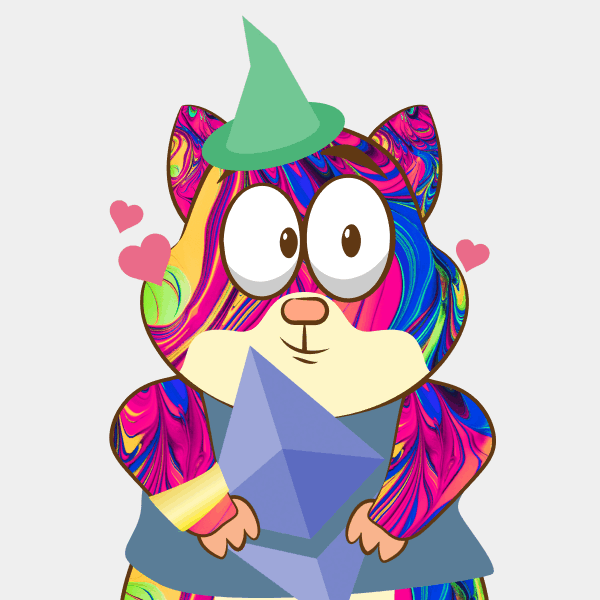Generative NFT Art
Introduction
The generative-art-nft repository is a library for creating generative art. It was developed for the purpose of creating NFT avatar & collectible projects. This library was used to generate the artwork for the Scrappy Squirrels project.
Features
Generate over a million distinct images with less than 60 traits
The library allows you to generate images every distinct possible combination of your traits. For context, if you had trait art for a project like Bored Apes, the library could generate upwards of 1.2 billion distinct apes.
Add rarity weights
The library also allows you to configure the image generation process in such a way that you have complete control over how rare each and every trait is.
Generate compliant JSON metadata for your NFTs
There is now an added functionality to generate JSON metadata for your NFTs that are in compliance with OpenSea metadata requirements (and by extension, the general NFT metadata standard).
Fuzzy friendly
You can use this library even if you do not know how to program (in Python or otherwise). Do check out the Tutorial for more details on how to use (non-technical) and extend (technical) the library.
Installation
Clone this repository
git clone https://github.com/rounakbanik/generative-art-nft.git
Install required packages
pip install Pillow pandas progressbar2
Upload your input assets in the assets folder, fill up the config.py file, and then run python nft.py.
In order to generate JSON metadata, define BASE_NAME, BASE_IMAGE_URL, and BASE_JSON in metadata.py and then run python metadata.py.
Usage
I have authored a detailed tutorial explaining how to use this library. Check it out here
About Scrappy Squirrels
This library was created as part of the Scrappy Squirrels Project.
Scrappy Squirrels is a collection of 10,000 randomly generated NFTs on the Ethereum Blockchain. Scrappy Squirrels are meant for buyers, creators, and developers who are completely new to the NFT ecosystem.
The community is built around learning about the NFT revolution, exploring its current use cases, discovering new applications, and finding members to collaborate on exciting projects with.
